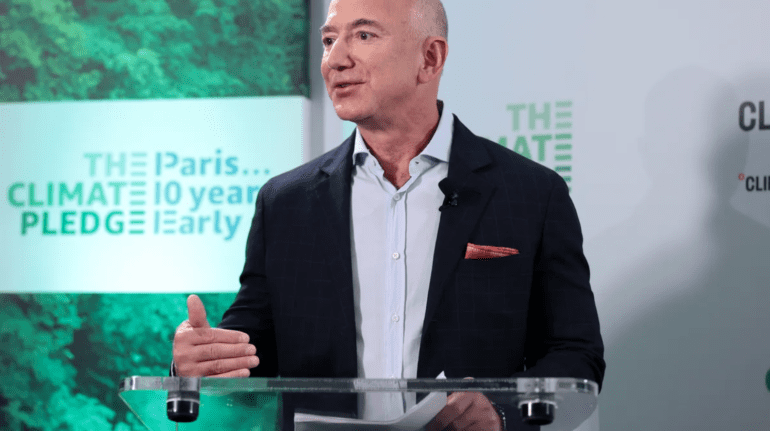- Bezos Earth Fund announces $100 million AI initiative to combat climate change and biodiversity loss.
- The initiative aims to foster collaboration between environmental advocates and AI technology providers.
- Three focus areas: sustainable proteins, biodiversity conservation, and power grid optimization.
- “Wild Card” category for innovative ideas beyond the focus areas.
- Up to 30 seed grants in the first phase; recipients announced during Climate Week NYC.
- Awardees are eligible for grants up to $2 million in phase two for further development.
- Proposals are invited from practitioners, researchers, and innovators worldwide.
- Collaboration between environmental and AI experts is crucial for success.
Main AI News:
In a groundbreaking move, the Bezos Earth Fund has announced the launch of the AI for Climate and Nature Grand Challenge, earmarking a staggering $100 million in grants. This ambitious initiative aims to harness the power of modern artificial intelligence to tackle the pressing issues of climate change and biodiversity loss. Spearheaded by Jeff Bezos, the Executive Chair of the Fund, the endeavor seeks to foster collaboration between environmental advocates and leading AI technology providers, pushing the boundaries of innovation in the fight against environmental degradation. The initiative will begin accepting applications in May 2024.
“Can artificial intelligence serve as a catalyst in our battle against climate change and nature loss? That is the pivotal question driving this grand challenge,” remarked Jeff Bezos. “Through the convergence of diverse expertise, we aspire to pioneer novel solutions that chart a sustainable path forward.”
The initial phase of the Grand Challenge will concentrate on three focal points: sustainable proteins, biodiversity conservation, and power grid optimization. Additionally, a “Wild Card” category will accommodate groundbreaking concepts beyond these realms. Subsequent phases will address additional priorities, ensuring a comprehensive approach to the multifaceted challenges at hand. Each phase will provide two funding opportunities.
During the inaugural phase, up to 30 seed grants will be allocated to promising AI initiatives targeting the specified focus areas. The recipients of these grants will be unveiled at a prestigious Bezos Earth Fund-TED event slated for Climate Week NYC in late September. In the subsequent phase, awardees will have the opportunity to vie for grants of up to $2 million, enabling them to further develop their concepts into tangible solutions. Participants will benefit from mentorship, guidance from technology luminaries, and access to cutting-edge computing infrastructure and pertinent datasets.
Lauren Sánchez, Vice Chair of the Bezos Earth Fund, underscored the importance of collective ingenuity in confronting these global challenges. “AI holds immense promise in addressing some of humanity’s most daunting predicaments. We urge the brightest minds worldwide to contribute their visionary ideas to this endeavor,” she emphasized.
Proposals are invited from a diverse array of stakeholders, including practitioners, researchers, and innovators from academia, non-governmental organizations, corporations, and other institutions. Given the interdisciplinary nature of the initiative, successful proposals are expected to entail collaborations between entities specializing in environmental advocacy and those proficient in AI technologies. Individual submissions will not be entertained.
Dr. Andrew Steer, President and CEO of the Bezos Earth Fund, emphasized the imperative of embracing innovation in navigating an uncertain future. “The trajectory ahead is likely to be characterized by turbulence and unpredictability. The advent of AI presents a unique opportunity to surmount formidable challenges,” he remarked. “Through this initiative, we aim to catalyze meaningful progress in addressing these pressing issues.”
Conclusion:
The Bezos Earth Fund’s $100 million AI initiative signifies a significant shift towards leveraging technology to address pressing environmental challenges. This move is likely to stimulate innovation in both the environmental and AI sectors, fostering partnerships and driving advancements in sustainable solutions. Companies operating in these sectors should prepare to adapt and capitalize on emerging opportunities arising from this collaborative effort.

